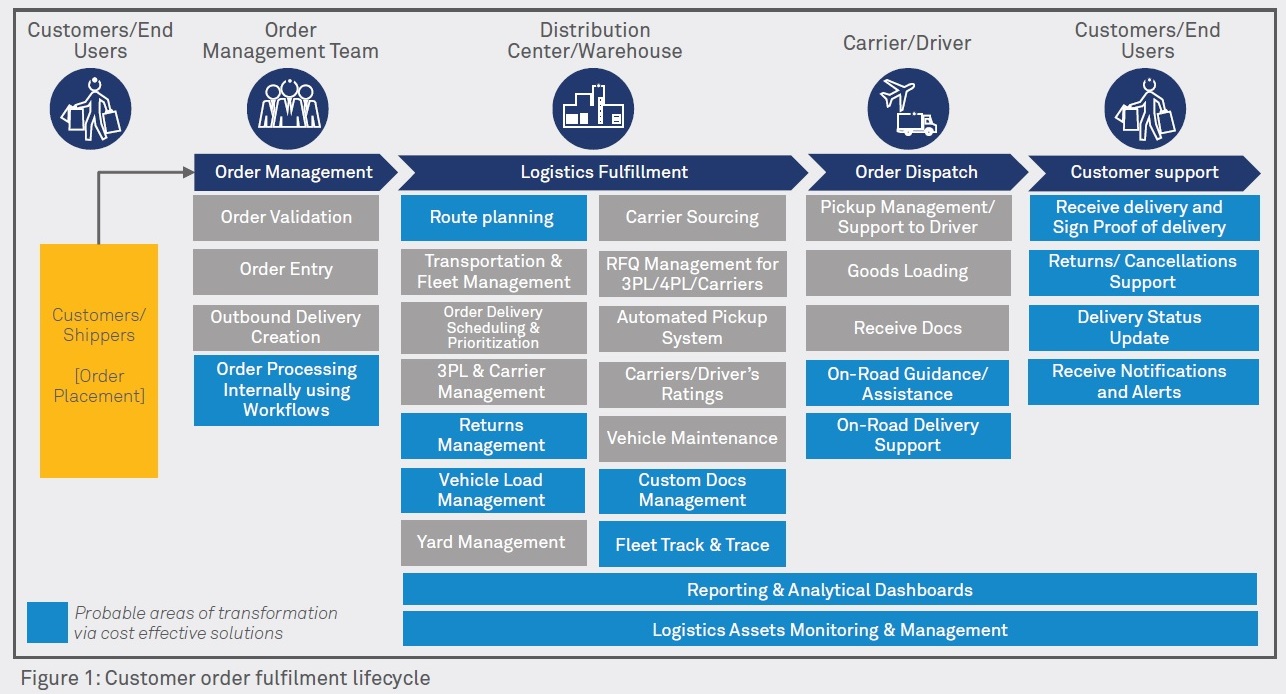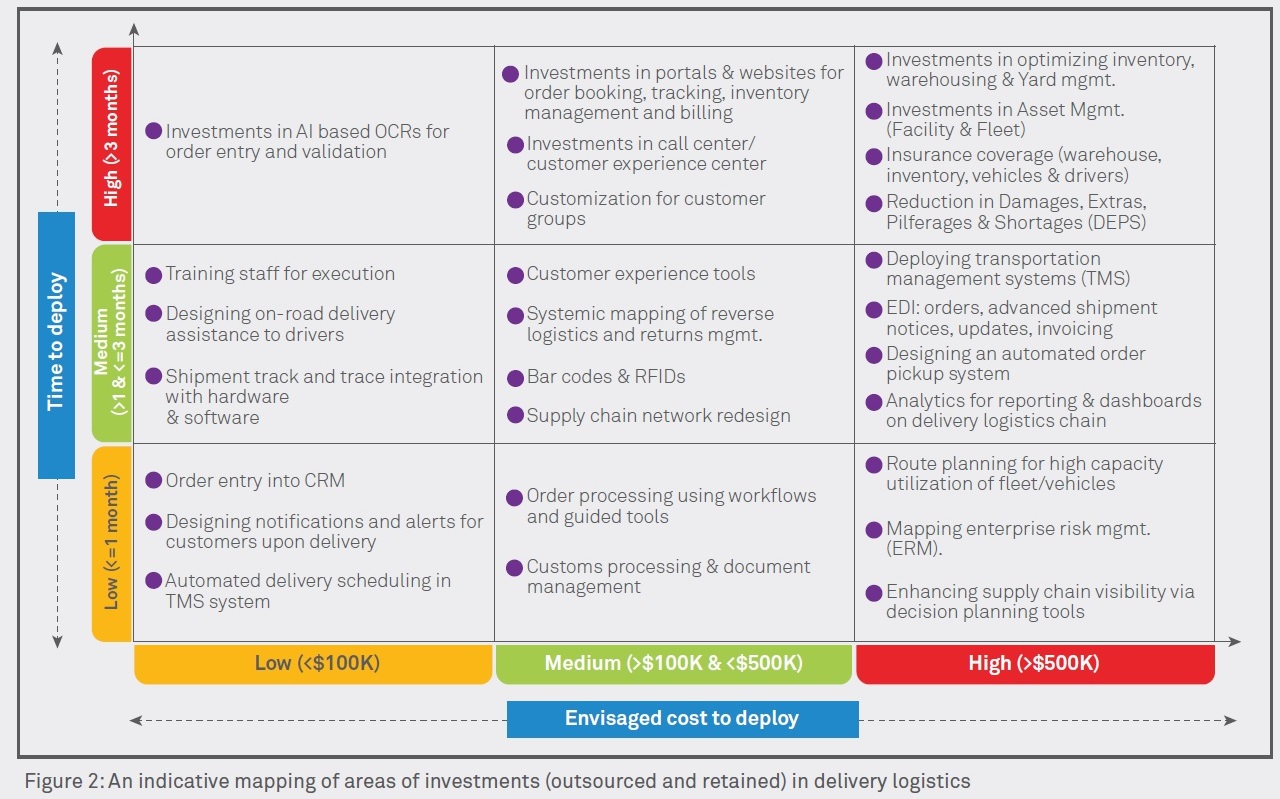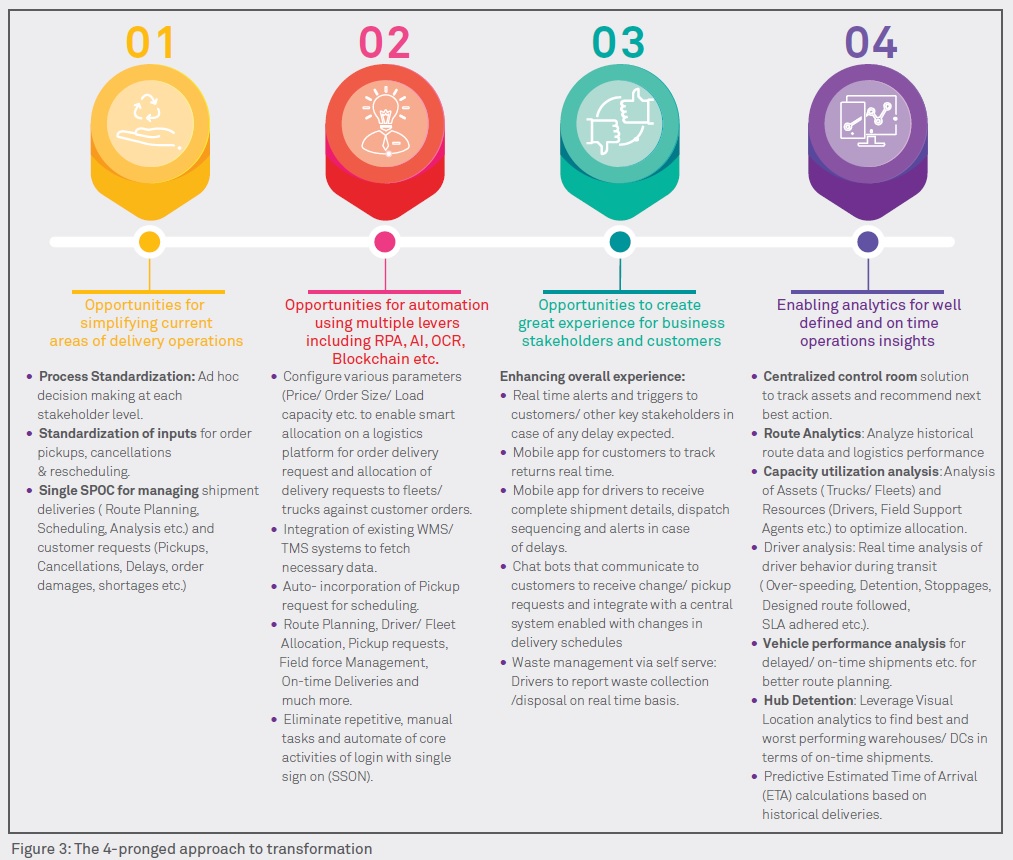The Supply Chain Management and Logistics market, valued globally at $6 trillion[1], is facing significant challenges due to the COVID-19 pandemic, a unique disruption witnessed in the recent times. Such is the effect of the pandemic that the topline of core industries such as Retail, Consumer, Manufacturing, Technology, Medical devices, and Travel etc. have shrunk by at least 15-35%. As they strive to regain their mojo, Supply Chain Management (SCM) and Logistics will be the epicenter of focus with allied industries aiming at optimizing their supply chain with minimum investments for maximum returns.
Transforming the ‘new normal’ to meet challenges
The SCM & Logistics market is gearing up to the growth challenge with autonomous vehicles (drones for delivery), driverless rapid transport systems, driverless cars etc. as the industry moves towards being digital via operations.
With adoption of autonomous vehicles, the US SCM & Logistics industry is set to witness a decline of 45% in operating costs and save the US trucking industry between $85-125 billion annually[2]. Asset sharing is gaining ground in logistics, i.e. third party logistics (3PL) companies are aiming to be asset light in terms of investments on trucks, warehouses, trains and ships etc. and consumer companies are participating in asset sharing to optimize total cost of operations (TCO).
Focus on these transformation areas is helping the industry regain the momentum:
The opportunities for transformation
Let us examine a typical logistics value chain comprising of order entry, fulfilment, dispatch and customer support (Depicted in Figure 1). Within the value chain mapping, there exists several opportunities for transformation. Shippers/carriers can use various technologies to drive wide range of efficiencies and automation in areas such as route planning, load balancing, track and trace, optimal fleet utilization, designing of right network for delivery etc. This will reduce overall TCO while providing optimal services to end customers.


Key challenges such as ad-hoc route planning, mapping shipments against fleets and drivers, limited visibility on fleet operations, inability to provide real time assistance to drivers on the go, inability to incorporate pick up requests in existing route schedule, and inability to keep customers informed can be addressed through transformation.
The disruptive approach to transformation
The challenges of transformation can be addressed via a four-pronged holistic approach that aims to standardize and simplify some operational activities, while automating some activities in the process, addressing challenges via analytics and all of this, by enabling higher customer experience. Figure 3 is an indicative art of possible within the logistics value chain to reduce the TCO by optimizing operations.
The whitespaces in the supply chain that will be addressed through this approach are:

Creating value through transformation
A holistic approach to transformation across logistics and supply chain value chain is essential to realize the benefits of transformation. The resultant value-add to the business and operations will be:
All of these eventually lead to a happy and satisfied customer that impacts the overall brand and Net promoter score (NPS). Continuous improvement in operations, higher employee morale and greater focus of employees from tactical to strategic tasks are resultant outcomes.
In summary, the success of the logistics & SCM industry depends upon the pace at which they are able to cater to their customers by designing solutions that help transform delivery led last mile logistics operations at an optimal cost. Success, at the same time for the vertical customers (Retail, consumers, manufacturing, medical devices etc.) that either outsource or do it in-house, depends on how they optimally manage cost of logistics and distribution. They will need a priority heat map for transformation depending on some of the whitespaces indicated in the 3*3 matrix defined earlier as a function of time and cost to deploy. The core and allied industries would need to continue to have their heart in the right place to ensure growth in/post COVID-19 era to help themselves and their customers flourish.
References:
Mehul D. Damani
Digital Operations & Platforms, Enterprise Operations Transformation, Wipro
Mehul is a seasoned digital and transformation thought leader with 13 years of experience in partnering with clients across business domains such as digital transformation, automation, customer experience enhancement, business strategy, B2B/B2C consulting, marketing & sales enablement operations. His industry focus includes verticals such as Retail, Consumer Goods, Travel, Manufacturing, Hi-Tech & Telecom.
Subrato Basu
Practice Head, Supply chain Management, Wipro
Subrato leads the Practice for supply chain that includes Order Management, Logistics, Warehousing, Planning, Aftermarket Support etc. He possesses 18+ years of experience in creating SCM solutions across various industries. His focus is to leverage industry best practices and transformation levers to deliver enhanced end user experience.
Varun Garg
Practice Manager, Supply chain Management, Wipro
Varun Garg is part of SCM Practice team with 7+ years of overall experience in IT industry. He comes with rich domain experience in Order Management, Logistics, Planning and other SCM functions. His industry focus includes verticals such as Retail, Consumer Goods, Travel & Medical devices.